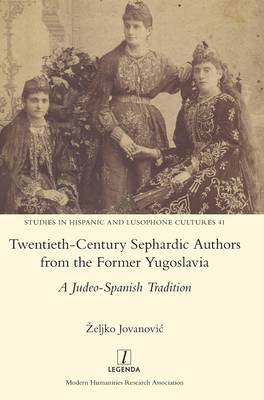
- Afhalen na 1 uur in een winkel met voorraad
- Gratis thuislevering in België vanaf € 30
- Ruim aanbod met 7 miljoen producten
- Afhalen na 1 uur in een winkel met voorraad
- Gratis thuislevering in België vanaf € 30
- Ruim aanbod met 7 miljoen producten
Twentieth-Century Sephardic Authors from the Former Yugoslavia
A Judeo-Spanish Tradition
Zeljko JovanovicOmschrijving
In the twentieth century, various Sephardic authors from the former Yugoslavia took upon themselves the task of revitalising different forms of Judeo-Spanish oral tradition such as narrative, songs or ballads. These forms were fostered in the language of the Sepharadim, Ladino or Judeo-Spanish, since the expulsion of the Jews from the Iberian Peninsula in 1492. In their diaspora the Sepharadim mainly settled in the Ottoman Empire whose collapse began at the end of the nineteenth century. This disintegration followed later on by the Holocaust resulted in a rapid decline of the Sephardic language and tradition, causing UNESCO in 2002 to declare Ladino a seriously endangered language. In this interdisciplinary cultural study, Zeljko Jovanovic examines the efforts of the Yugoslav Sephardic authors to preserve the memory of a culture and a language in decline as their way of constructing their own personal and collective narrative and identity.
Zeljko Jovanovic is a researcher in Sephardic studies at the Institute of Language, Literature and Anthropology (ILLA) of the CSIC (Madrid, Spain).
Specificaties
Betrokkenen
- Auteur(s):
- Uitgeverij:
Inhoud
- Aantal bladzijden:
- 224
- Taal:
- Engels
- Reeks:
- Reeksnummer:
- nr. 41
Eigenschappen
- Productcode (EAN):
- 9781781888513
- Verschijningsdatum:
- 28/09/2020
- Uitvoering:
- Hardcover
- Formaat:
- Genaaid
- Afmetingen:
- 170 mm x 244 mm
- Gewicht:
- 557 g

Alleen bij Standaard Boekhandel
Beoordelingen
We publiceren alleen reviews die voldoen aan de voorwaarden voor reviews. Bekijk onze voorwaarden voor reviews.








